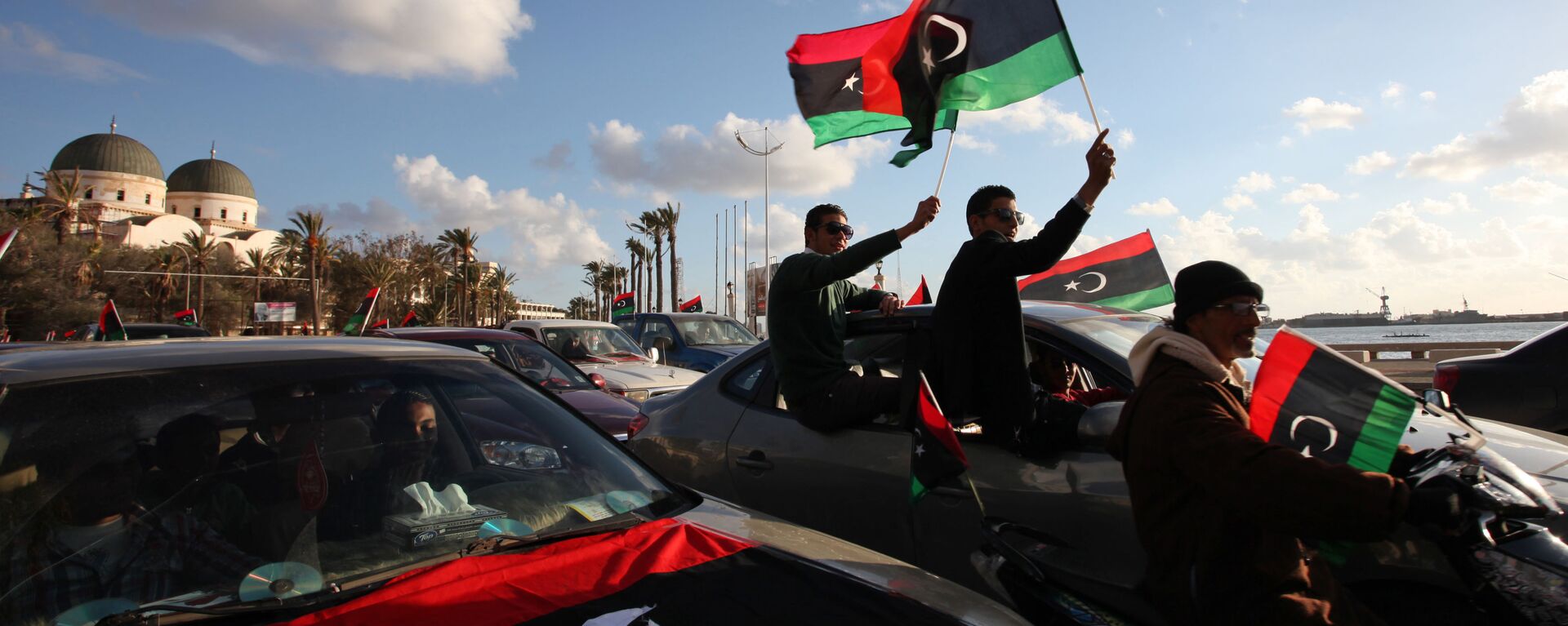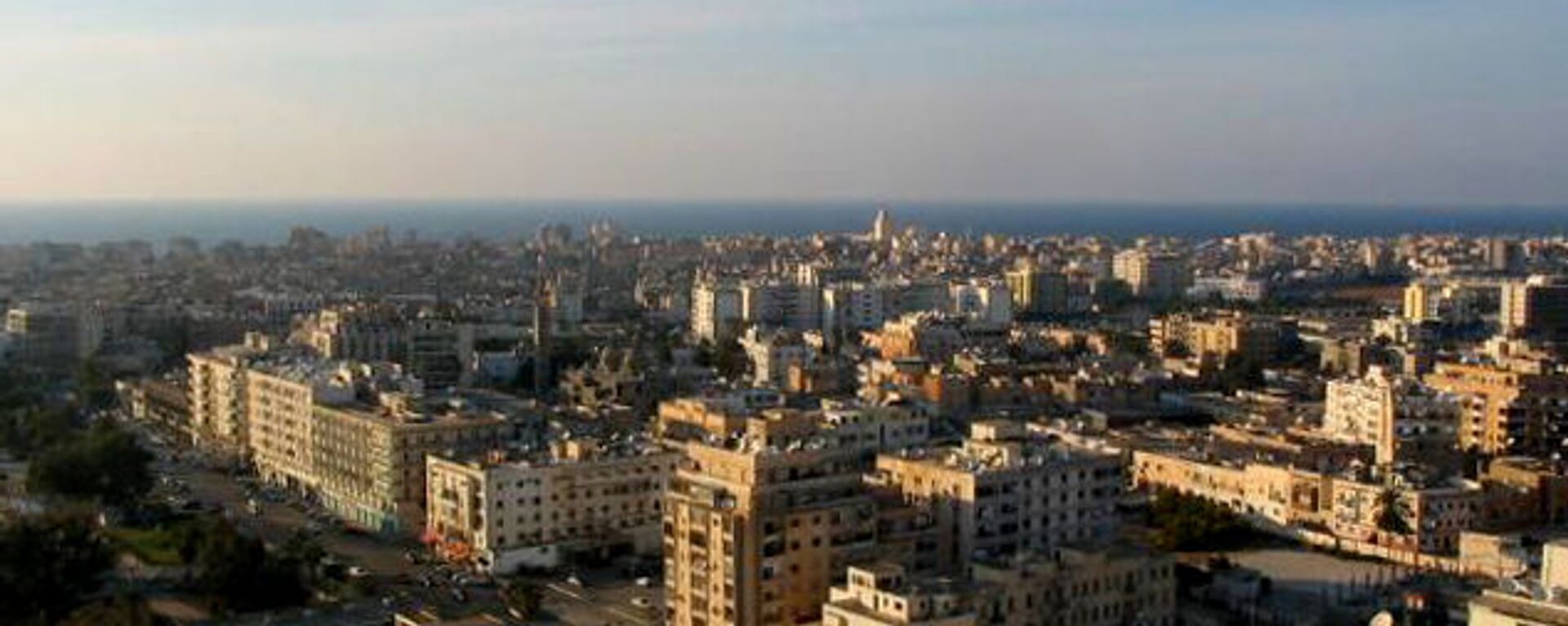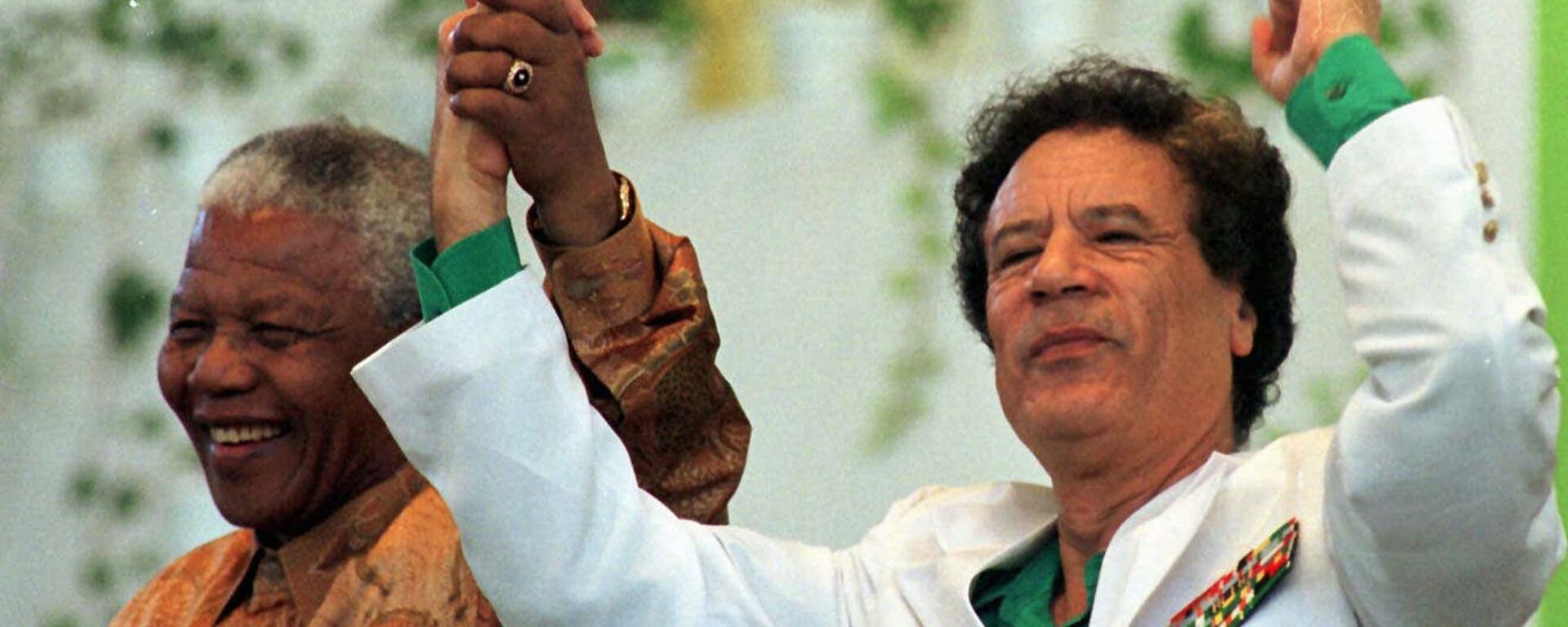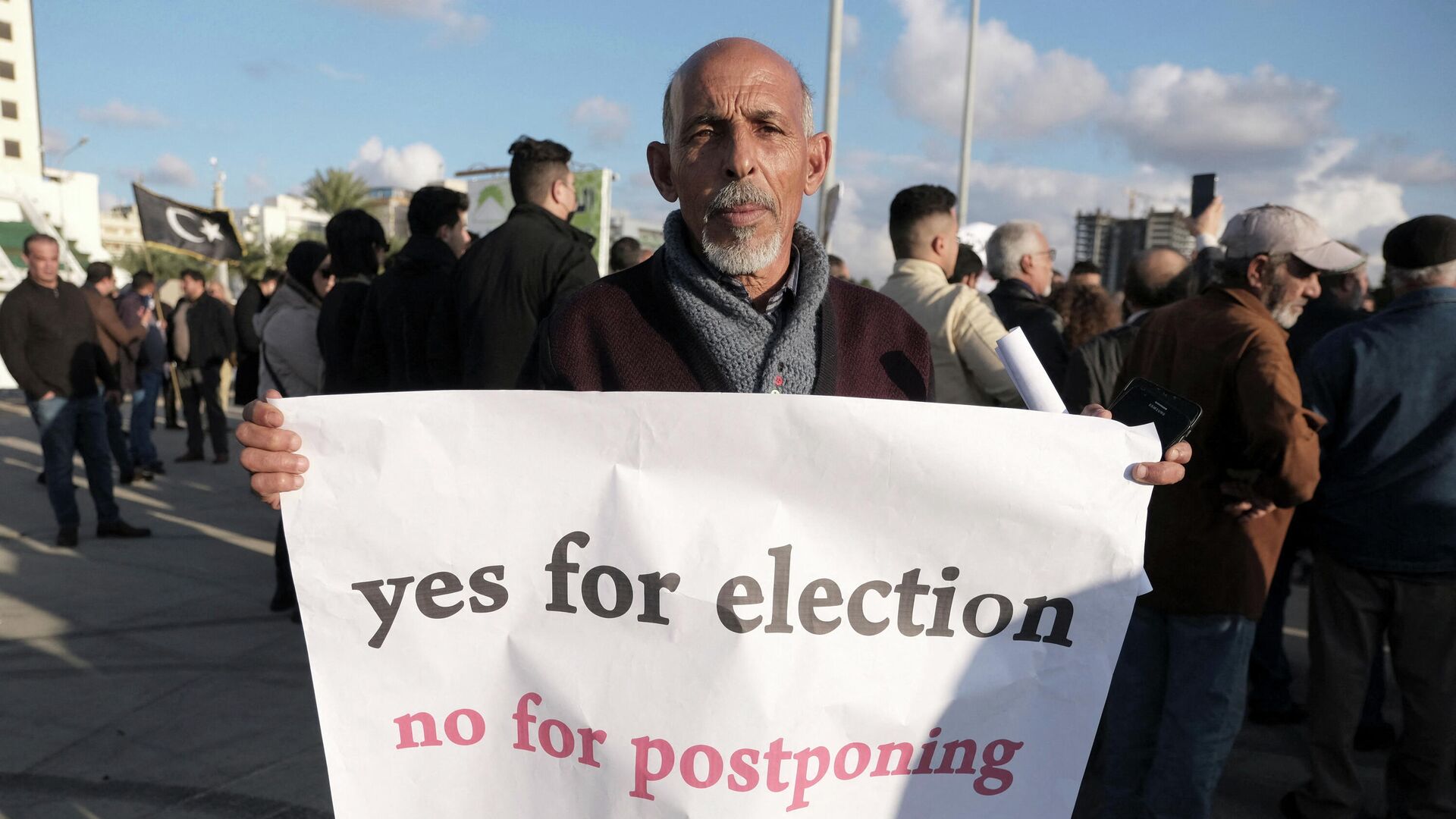https://sputnikglobe.com/20220119/un-special-adviser-on-libya-discourse-of-war-has-been-replaced-by-discourse-of-politics-1092366294.html
UN Special Adviser on Libya: 'Discourse of War Has Been Replaced by Discourse of Politics'
UN Special Adviser on Libya: 'Discourse of War Has Been Replaced by Discourse of Politics'
Sputnik International
Last month, US diplomat Stephanie Williams, who headed the Libya reconciliation talks that led to the October 2020 ceasefire, was appointed as the new special... 19.01.2022, Sputnik International
2022-01-19T15:22+0000
2022-01-19T15:22+0000
2022-01-19T15:21+0000
interviews
middle east
libya
elections
war
https://cdn1.img.sputnikglobe.com/img/07e5/0c/18/1091783148_0:0:2993:1685_1920x0_80_0_0_30c6f41712dfbdfe9c32d480a7ab08be.jpg
In an interview with Sputnik, Williams reflects on what Libya has already achieved with the help of the international community on its path to post-war reconstruction, and the role of the UN in helping Libyans to determine their country's future. Sputnik: What is your visit to Moscow trying to achieve?Stephanie Williams: My visit to Moscow comes in the context of visits to several other countries. I was in Ankara and Cairo as well, and then I had the invitation to visit Moscow. The purpose of the visit, really, is to exchange views on the latest developments in Libya, and to express support for the Libyan-led and Libyan-owned peace process, and to support the momentum for elections in Libya. We also discussed the importance of the international community's support for Libyan outcome and how the international community has been able to do that in the context of the UN Security Council and the Berlin process.Sputnik: Do you think the elections will be postponed again?Stephanie Williams: Of course, that's going to be a Libyan decision. There are the Libyan institutions that are concerned with implementing the elections: you have the high national elections commission, you have the various ministries within the government, but of course, you have the parliament and then the advisory chamber 'the high council of states'. Those are Libyan institutions. What I have noted is that there is a road map that was approved by the Libyan political dialogue forum and endorsed by the UN Security Council, that's a road map that goes out until June this year.Sputnik: Regarding the roadmap that expires in June, will a new one be developed? What steps are being planned?Stephanie Williams: Well, what we know is there is a committee that has been selected within the parliament. They have their road map committee now, and that was established after the high national elections commission declared 'force majeure' and therefore could not go ahead with the presidential elections as had been designated and determined. This road map committee is scheduled to deliver a report and recommendations on 25 January. So, we’ll have to wait for it to see what the committee suggests.Sputnik: The head of Libya's Presidency Council, Mr. Menfi, said that a UN-backed initiative will soon be announced. Are you acquainted with this initiative and did you approve it? Did any other parties propose initiatives?Stephanie Williams: When did he say that? Today?Sputnik: On 29 December. He said there is a new initiative backed by the UN that will be announced soon.Stephanie Williams: I’m not specifically aware of the context of his remarks. What I can say, of course, the UN, we are in Libya, and I have been designated as the special advisor to the secretary-general to support the Libyan-Libyan dialogue under the 3 tracks of the Berlin process: that is the political, economic and military tracks that are the inter-Libyan dialogue tracks.Of course, the presidency council does have a specific role to play: that is in activating the track of national reconciliation which really needs to accompany the electoral process. So, I’ve been encouraging the presidency council to get moving on this process because mainly Libyans are calling for it...Well, there are a lot of positive things that have happened in the last 15 months I would say since the cease-fire agreement was announced. One of them is that Libyans are now talking to each other and that needs to continue. The discourse of war has been replaced by the discourse of politics. A peaceful resolution of the dispute and energising national reconciliation can help sustain and maintain the calm that we now see on the ground.Sputnik: Were there new initiatives presented by other parties to the UN?Stephanie Williams: Many Libyans have come to me with proposals, but as I said, it’s the institutions that are concerned with elections that we need to hear from. And those are the parliament, the high national elections commission, the ministries: the ministry of interior for instance; of course, the presidency council itself, does have its own role to play given that it’s three members who represent the three historic regions of Libya.Sputnik: What is your position on the call of the Speaker of Parliament, Mr Saleh, to form a new committee to draft the constitution and change the current government?Stephanie Williams: Yes, this came up in the context of the session of yesterday. I’m aware of several initiatives or proposals on committees to address the constitutional issue. You know, there are those in Libya, certainly with my consultations with Libyans, and I’ve spent an intense 12 day period travelling the country and talking to many different constituencies. You have different options that I think are on the table, certainly, I’m sure that the lawmakers and legislators are hearing from their own constituencies on this.You have the constitutional track: there are two parts of the constitutional track. One is devising or agreeing upon a constitutional basis for elections and then deferring the issue of the full treatment of the constitution to a stage where you would have an elected government and an elected president, a stronger executive and a more durable security arrangement. There are others who say – no you need a full referendum on a draft constitution before you move to elections. There are those who say – what is needed is an amendment of the current electoral laws that you could move to elections.There are many different views in Libya. This is one of the intricacies of the process. There are those who say – what you need is a judicial review of the challenges or the judicial disputes regarding the candidacies of certain individuals. And then you have those who say – no you should have parliamentary elections first, then you allow the parliament to deal with the issue of the constitution and then you do presidential elections. So, you see... And this is where, bringing the Libyans together so they can come up with a consensual view on the way forward is very important.Sputnik: What does the UN see as the most suitable plan for Libya?Stephanie Williams: I believe that the role of the UN is to help the Libyans to come together in a fully inclusive process, and that's a process, like the process that we ran that resulted in the approval of the road map that designated December 24th as the elections' day. And the selection of the interim government was a process that certainly included the two legislative chambers, but also brought in many more components of the Libyan society, in particular the supporters of the former regime, of Mr. Gaddafi's government; In any UN process up to that point, they were not invited to participate, and I believe that we had that measure of success because we ran a fully inclusive process, and that is very important for Libyans to succeed. It's not to have a process that aims to marginalise or exclude any particular important constituency in the country.So that's what we certainly encourage, and we are more than happy to accompany the Libyans in their own process and to assist them to come to this. Really what's necessary is a fully consensual way forward.Sputnik: Am I right in thinking that the position of the UN is that Libyans should decide on their constitution and their government on their own, and that you will support them in any outcome?Stephanie Williams: We will accompany the Libyans. I think it's also important that this fully inclusive process helps to increase the acceptance of electoral results, and I have encouraged, and while it is fully the decision of the parliament whether or not to take up the issue of changing the government, I have modestly suggested that parliament would be better placed focusing on the electoral process; rather than creating another interim, transitional government, that what the Libyan people need or be able to do is to go to the polls and elect a fully representative, democratically elected government that has full sovereignty and helps in this process of unifying institutions and bringing the country together.Sputnik: If the elections are postponed again (those of June), what course of action will the UN take, and will the legitimacy of the national unity government expire?Stephanie Williams: I think that what the United Nations has done and continues to do, is to support the 2.5 million Libyans, who have collected their voter registration cards and want to go to the polls and to lift their voices and to really maintain the momentum for elections. Certainly, the Security Council has endorsed the elections and has endorsed the road map that goes out until June of this year, and it is the purview of the Security Council to determine further steps for the Libyan political process. And in terms of the legitimacy of the current government, that again is also the purview of the Libyan parliament. But there are also internationally recognized agreements that Libyans themselves have signed, that set out what is the necessary quorum for the parliament to have in order to change the government. So I think it's very important for the parliament to follow its own rules.Sputnik: Have you registered any violations of the arms embargo in Libya?Stephanie Williams: It's not the role of the political mission to take account of that. That is under the purview of the UN panel of experts, and they regularly issue reports where they register what they have recorded as violations of the arms embargo.Sputnik: How likely is it that armed hostilities in Libya will return?Stephanie Williams: When I came back to Libya after an absence of ten months, I was very pleased to discover that there was this discourse of resolving differences through peaceful means, and a true desire of Libyans, including armed groups, those who have carried arms against each other, to not return to war, and I think it's very important for the international community to encourage Libyans to preserve this calm. We've even had last month in Benghazi, a meeting of very important figures who had been on the opposing sides of the conflict. General Haftar met with the former minister of the interior Fathi Bashagha. So if those who directly bore arms against each other can sit and discuss peacefully the future of the country, then I think certainly the politicians can resolve their differences as well.
https://sputnikglobe.com/20211221/libya-is-readying-itself-for-elections-but-are-they-even-possible-1091688454.html
https://sputnikglobe.com/20211122/libya-not-ready-to-normalise-ties-with-israel-as-other-acute-issues-take-the-lead-says-journalist-1090918307.html
https://sputnikglobe.com/20211021/ten-years-since-libyas-gaddafi-was-murdered-by-nato-backed-rebels-1090087300.html
libya
Sputnik International
feedback@sputniknews.com
+74956456601
MIA „Rosiya Segodnya“
2022
Sputnik International
feedback@sputniknews.com
+74956456601
MIA „Rosiya Segodnya“
News
en_EN
Sputnik International
feedback@sputniknews.com
+74956456601
MIA „Rosiya Segodnya“
Sputnik International
feedback@sputniknews.com
+74956456601
MIA „Rosiya Segodnya“
interviews, middle east, libya, elections, war
interviews, middle east, libya, elections, war
UN Special Adviser on Libya: 'Discourse of War Has Been Replaced by Discourse of Politics'
Last month, US diplomat Stephanie Williams, who headed the Libya reconciliation talks that led to the October 2020 ceasefire, was appointed as the new special adviser to the UN chief on Libya. Her appointment came shortly before the country was due to hold the first round of its presidential election that was later postponed until June.
In an interview with Sputnik, Williams reflects on what Libya has already achieved with the help of the international community on its path to post-war reconstruction, and the role of the UN in helping Libyans to determine their country's future.
Sputnik: What is your visit to Moscow trying to achieve?
Stephanie Williams: My visit to Moscow comes in the context of visits to several other countries. I was in Ankara and Cairo as well, and then I had the invitation to visit Moscow. The purpose of the visit, really, is to exchange views on the latest developments in Libya, and to express support for the Libyan-led and Libyan-owned peace process, and to support the momentum for elections in Libya. We also discussed the importance of the international community's support for Libyan outcome and how the international community has been able to do that in the context of the UN Security Council and the Berlin process.
Sputnik: Do you think the elections will be postponed again?
Stephanie Williams: Of course, that's going to be a Libyan decision. There are the Libyan institutions that are concerned with implementing the elections: you have the high national elections commission, you have the various ministries within the government, but of course, you have the parliament and then the advisory chamber 'the high council of states'. Those are Libyan institutions. What I have noted is that there is a road map that was approved by the Libyan political dialogue forum and endorsed by the UN Security Council, that's a road map that goes out until June this year.
Sputnik: Regarding the roadmap that expires in June, will a new one be developed? What steps are being planned?
Stephanie Williams: Well, what we know is there is a committee that has been selected within the parliament. They have their road map committee now, and that was established after the high national elections commission declared 'force majeure' and therefore could not go ahead with the presidential elections as had been designated and determined. This road map committee is scheduled to deliver a report and recommendations on 25 January. So, we’ll have to wait for it to see what the committee suggests.
Sputnik: The head of Libya's Presidency Council, Mr. Menfi, said that a UN-backed initiative will soon be announced. Are you acquainted with this initiative and did you approve it? Did any other parties propose initiatives?
Stephanie Williams: When did he say that? Today?
Sputnik: On 29 December. He said there is a new initiative backed by the UN that will be announced soon.
Stephanie Williams: I’m not specifically aware of the context of his remarks. What I can say, of course, the UN, we are in Libya, and I have been designated as the special advisor to the secretary-general to support the Libyan-Libyan dialogue under the 3 tracks of the Berlin process: that is the political, economic and military tracks that are the inter-Libyan dialogue tracks.
Of course, the presidency council does have a specific role to play: that is in activating the track of national reconciliation which really needs to accompany the electoral process. So, I’ve been encouraging the presidency council to get moving on this process because mainly Libyans are calling for it...Well, there are a lot of positive things that have happened in the last 15 months I would say since the cease-fire agreement was announced. One of them is that Libyans are now talking to each other and that needs to continue. The discourse of war has been replaced by the discourse of politics. A peaceful resolution of the dispute and energising national reconciliation can help sustain and maintain the calm that we now see on the ground.

21 December 2021, 09:28 GMT
Sputnik: Were there new initiatives presented by other parties to the UN?
Stephanie Williams: Many Libyans have come to me with proposals, but as I said, it’s the institutions that are concerned with elections that we need to hear from. And those are the parliament, the high national elections commission, the ministries: the ministry of interior for instance; of course, the presidency council itself, does have its own role to play given that it’s three members who represent the three historic regions of Libya.
Sputnik: What is your position on the call of the Speaker of Parliament, Mr Saleh, to form a new committee to draft the constitution and change the current government?
Stephanie Williams: Yes, this came up in the context of the session of yesterday. I’m aware of several initiatives or proposals on committees to address the constitutional issue. You know, there are those in Libya, certainly with my consultations with Libyans, and I’ve spent an intense 12 day period travelling the country and talking to many different constituencies. You have different options that I think are on the table, certainly, I’m sure that the lawmakers and legislators are hearing from their own constituencies on this.
You have the constitutional track: there are two parts of the constitutional track. One is devising or agreeing upon a constitutional basis for elections and then deferring the issue of the full treatment of the constitution to a stage where you would have an elected government and an elected president, a stronger executive and a more durable security arrangement. There are others who say – no you need a full referendum on a draft constitution before you move to elections. There are those who say – what is needed is an amendment of the current electoral laws that you could move to elections.
There are many different views in Libya. This is one of the intricacies of the process. There are those who say – what you need is a judicial review of the challenges or the judicial disputes regarding the candidacies of certain individuals. And then you have those who say – no you should have parliamentary elections first, then you allow the parliament to deal with the issue of the constitution and then you do presidential elections. So, you see... And this is where, bringing the Libyans together so they can come up with a consensual view on the way forward is very important.

22 November 2021, 08:43 GMT
Sputnik: What does the UN see as the most suitable plan for Libya?
Stephanie Williams: I believe that the role of the UN is to help the Libyans to come together in a fully inclusive process, and that's a process, like the process that we ran that resulted in the approval of the road map that designated December 24th as the elections' day. And the selection of the interim government was a process that certainly included the two legislative chambers, but also brought in many more components of the Libyan society, in particular the supporters of the former regime, of Mr. Gaddafi's government; In any UN process up to that point, they were not invited to participate, and I believe that we had that measure of success because we ran a fully inclusive process, and that is very important for Libyans to succeed. It's not to have a process that aims to marginalise or exclude any particular important constituency in the country.
So that's what we certainly encourage, and we are more than happy to accompany the Libyans in their own process and to assist them to come to this. Really what's necessary is a fully consensual way forward.
Sputnik: Am I right in thinking that the position of the UN is that Libyans should decide on their constitution and their government on their own, and that you will support them in any outcome?
Stephanie Williams: We will accompany the Libyans. I think it's also important that this fully inclusive process helps to increase the acceptance of electoral results, and I have encouraged, and while it is fully the decision of the parliament whether or not to take up the issue of changing the government, I have modestly suggested that parliament would be better placed focusing on the electoral process; rather than creating another interim, transitional government, that what the Libyan people need or be able to do is to go to the polls and elect a fully representative, democratically elected government that has full sovereignty and helps in this process of unifying institutions and bringing the country together.

21 October 2021, 01:16 GMT
Sputnik: If the elections are postponed again (those of June), what course of action will the UN take, and will the legitimacy of the national unity government expire?
Stephanie Williams: I think that what the United Nations has done and continues to do, is to support the 2.5 million Libyans, who have collected their voter registration cards and want to go to the polls and to lift their voices and to really maintain the momentum for elections. Certainly, the Security Council has endorsed the elections and has endorsed the road map that goes out until June of this year, and it is the purview of the Security Council to determine further steps for the Libyan political process. And in terms of the legitimacy of the current government, that again is also the purview of the Libyan parliament. But there are also internationally recognized agreements that Libyans themselves have signed, that set out what is the necessary quorum for the parliament to have in order to change the government. So I think it's very important for the parliament to follow its own rules.
Sputnik: Have you registered any violations of the arms embargo in Libya?
Stephanie Williams: It's not the role of the political mission to take account of that. That is under the purview of the UN panel of experts, and they regularly issue reports where they register what they have recorded as violations of the arms embargo.
Sputnik: How likely is it that armed hostilities in Libya will return?
Stephanie Williams: When I came back to Libya after an absence of ten months, I was very pleased to discover that there was this discourse of resolving differences through peaceful means, and a true desire of Libyans, including armed groups, those who have carried arms against each other, to not return to war, and I think it's very important for the international community to encourage Libyans to preserve this calm. We've even had last month in Benghazi, a meeting of very important figures who had been on the opposing sides of the conflict. General Haftar met with the former minister of the interior Fathi Bashagha. So if those who directly bore arms against each other can sit and discuss peacefully the future of the country, then I think certainly the politicians can resolve their differences as well.






